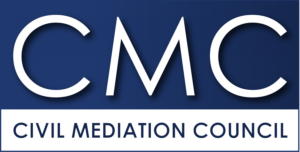
CIPD in Wales Awards 2024 Best Learning and Development Initiative
We had a fabulous evening at the CIPD in Wales awards on Friday! We wined, we dined and we danced the night away. It was fantastic… Read more »
Email: [email protected] Tel: 08000 489235 LinkedIn
 As an active member of the CMC Workplace and Employment workgroup, I was delighted to be asked to be involved in a series of events that the CMC have been hosting in collaboration with Hive Society, to support conflict resolution experts and organisations in navigating our way through the challenges posed by COVID-19.
As an active member of the CMC Workplace and Employment workgroup, I was delighted to be asked to be involved in a series of events that the CMC have been hosting in collaboration with Hive Society, to support conflict resolution experts and organisations in navigating our way through the challenges posed by COVID-19.
With lockdown measures being eased and the pace of change / rapid emergency and crisis planning hopefully a thing of the past and employees starting to return to work, what are the challenges that are still ahead for organisations across the UK as a result of COVID-19? What is the fall out from what has gone before / the tensions that staff are feeling and the potential for conflict going forwards? What can be done to try and build capacity for conflict resolution? Where do organisations stand legally if staff are reluctant to return to work / demanding that they must return or preferring to keep a flexible working pattern to help with childcare responsibilities or someone who is / was shielding?
These are just some of the questions I posed to an expert panel of speakers on 22nd July which comprised Caroline Sheridan (Chair of CMC Workplace and Employment Group, CEO of Sheridan Resolutions Ltd), Angela Lewis (Director of People Transformation, Companies House) and David Whincup (London Head of Employment, Squire Patton Boggs). I wanted to take this opportunity to share with you some of my takeaways from the discussion.
You can register and listen to a full recording of the discussion here. By registering you will also receive an invite from the CMC to join us for a virtual coffee on 7 September 2020, 13.30 – 14.00pm where we would love to hear your experiences and the strategies that you have been / are implementing to help navigate your way in a post pandemic world. It’s also a chance for you to ask questions to the expert panel and an opportunity for a real-time update as to how strategies that you have adopted have helped / how things have moved forward for you between now and September!
We have all had to adapt and learn / upskill ourselves to be able to work and provide our services remotely as a result of COVID-19, whether that’s adapting to providing mediations online rather than face to face or, for larger organisations such as Companies House, enabling a workforce of over 1000 employees to work from home. Angela Lewis explained that a remote working project, which had been planned to be rolled out by them over a two-year period was rolled out in just two weeks as a result of COVID-19 and was a real testament to their dedicated IT team!
Echoing Caroline’s experience, when lockdown first happened, mediation enquiries were placed on hold initially with clients waiting to see whether these could be carried out face to face, to a definite shift in clients and parties’ engaging in online mediation and this growing as an industry. I know we will certainly continue to provide mediation services online as well as more online webinars, which have received great feedback and enabled us to reach a much wider audience; someone even joining us from Australia!
We are certainly receiving a number of new enquiries for mediations and from what we are hearing from our clients, the potential for conflict as a result of COVID-19 is high. The panel agreed that with staff fearful of losing their jobs, the imposition of pay cuts and part time working and perceptions and assumptions being made about other people having had a better hand dealt to them or as David aptly put it; while we may all be on the same boat, some may be seen to have a better cabin, the need to build capacity for conflict resolution post COVID-19 is perhaps greater now than ever before.
David also shared the alarming fact that Employment Tribunals are experiencing such a major backlog due to the pandemic that there is a wait for a hearing date into 2022. Therefore, not only will it take a long time to get a case heard in the post COVID-19 world, with companies struggling financially, it is also important to try and reduce the time being spent managing conflict as well as the hefty legal bills.
So, what can you do to try and build capacity for informal conflict resolution and move to a more resolution, rather than grievance based, culture?
It was great to hear some of the things that Angela has been and is planning to implement at Companies House. This has included staff blogs which are shining a light on people’s own different situations (or cabins!) so colleagues are more aware and challenging assumptions that they might have made. She is also utilising the skill set of their internally trained mediators and people coaches to help with facilitated discussions with staff, to defuse any tension and nip potential conflicts in the bud.
Developing Managers to be able to lead remotely and upskilling them so that they can manage conflict situations early is certainly one of the keys to building capacity for conflict resolution and something that Caroline and David are both currently involved in with their clients. At Resolution at Work we also provide bespoke in-house training, for Managers and HR professionals, on conflict resolution skills and provide conflict and resilience coaching. We are particularly focusing on the importance of resilience at this time and its link to conflict resolution.
From 1 August, the government is changing its guidance so that employers have discretion to decide whether employees continue to work from home or return to the office. What does this mean for staff / organisations going forwards? Do employees have a right to stay at home? Can employers legally request that an employee returns to work? What if an employee needs to continue with flexible working arrangements to accommodate childcare or someone who is / was shielding?
David helpfully answered these questions and will be at the virtual coffee on the 7th to answer any more. We look forward to seeing you then.
In the meantime, if you have a situation that requires mediation or simply would like some more information about online mediation or any of our services, please contact us [email protected] or 08000 489235.
Follow us on LinkedIn, where we provide details of latest news, upcoming events and links to interesting articles around the topic of conflict resolution, mediation and training.
The report was very professional, it dealt with all the issues raised and was particularly thorough. It clearly took the time to fully understand all of the issues and background. It was complex but the report really helped to break it down and I’m hoping we can progress in a positive manner following the recommendations.
Group HR Manager, Energy Sector |

We had a fabulous evening at the CIPD in Wales awards on Friday! We wined, we dined and we danced the night away. It was fantastic… Read more »
3 new members of the Resolution at Work team have recently become certified in the fantastic Conflict Dynamics Profile model for conflict coaching, and we have… Read more »
It is not uncommon for conflict to arise between different teams. This can have considerable impact on both individuals and performance. A number of approaches can be used in this sort of scenario, including neutral assessment, team facilitation and group mediation.
Agreement could not be reached to enter into mediation in this situation and therefore coaching was an alternative support provided to one of the parties. The relationship between a majority shareholder and a shareholder/director was causing conflict. The relationship would be ok at times but disagreements would flare up from time to time and this was beginning to impact on the business.